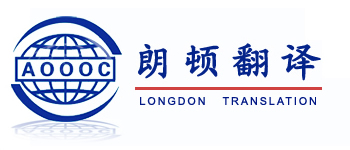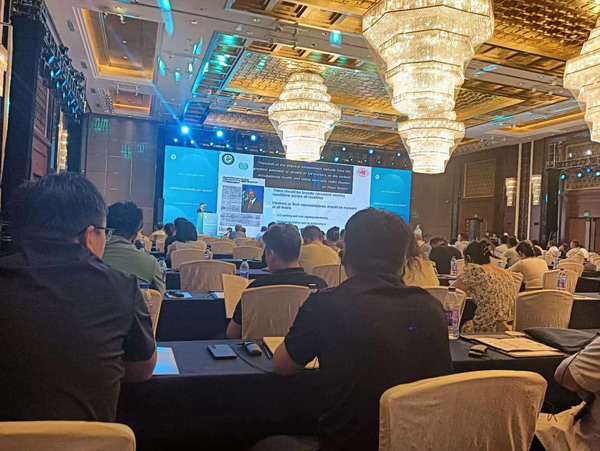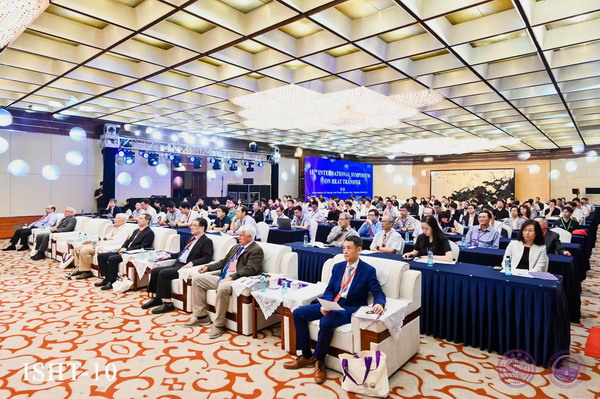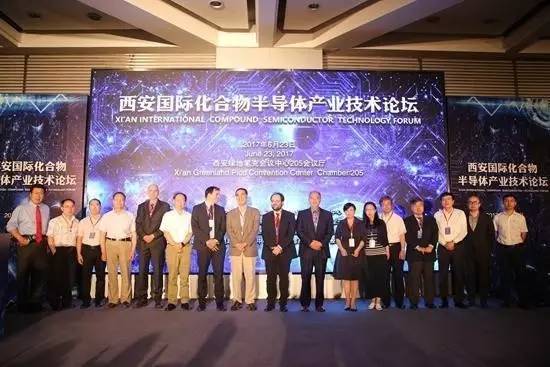Donald TrumpĪ»s top trade official has opened thedoor to reviving trade negotiations with the EU butwarned the bloc it will be in competition with Chinaand Japan to show willingness to do the first dealwith the new US administration.
├└ć°(gu©«)┐éĮy(t©»ng)╠Ų╝{Ą┬?╠ž└╩Ųš(Donald Trump)Ą─ūŅĖ▀┘Q(m©żo)ęū╣┘åTķ_åó┴╦┼cÜW├╦(EU)╗ųÅ═(f©┤)┘Q(m©żo)ęūšä┼ąĄ─┤¾ķTŻ¼Ą½Š»ĖµÜW├╦Ż║╦³ąĶę¬┼cųąć°(gu©«)║═╚š▒Šš╣ķ_Ėé(j©¼ng)ĀÄ(zh©źng)Ż¼ęįūC├„ūį╝║įĖęŌ╩ūŽ╚┼c╠ž└╩Ųšš■Ė«▀_(d©ó)│╔ģf(xi©”)ūhĪŻ
Wilbur Ross, US commerce secretary, said the needto cut the USĪ»s $146bn transatlantic trade deficit ingoods was one of his priorities. The deficit is second only to the $347bn one with China.
├└ć°(gu©«)╔╠äš(w©┤)▓┐ķL(zh©Żng)═■Ā¢▓«?┴_╦╣(Wilbur Ross)▒Ē╩ŠŻ¼├└ć°(gu©«)ąĶę¬ĮĄĄ═1460ā|├└į¬Ą─ī”(du©¼)ÜWžø╬’┘Q(m©żo)ęū│ÓūųŻ¼▀@╩Ū╦¹Ą─ā×(y©Łu)Ž╚╩┬ĒŚ(xi©żng)ų«ę╗ĪŻ▀@éĆ(g©©)öĄ(sh©┤)ūųāH┤╬ė┌3470ā|├└į¬Ą─├└ć°(gu©«)ī”(du©¼)╚Ažø╬’┘Q(m©żo)ęū│ÓūųĪŻ
The billionaire investor is due to host Cecilia Malmstr?m, EU trade commissioner, in Washingtontoday for their first meeting to discuss how to proceed with talks over a Transatlantic Tradeand Investment Partnership (TTIP) launched under the Obama administration. Those talksstarted in 2013 but stalled last year amid intense political opposition in the EU and last JuneĪ»svote by the UK to leave the bloc.
▀@╬╗ā|╚fĖ╗║└═Č┘Yš▀ų▄ę╗īóį┌╚A╩óŅDėŁĮėÜW├╦┘Q(m©żo)ęūīŻåT╚¹╬„└“üå?±R─Ę╦╣╠ž┴_─Ę(Cecilia Malmstr?m)Ż¼┼eąąā╔╚╦ų«ķgĄ─╩ū┤╬Ģ■(hu©¼)╬ŅŻ¼ėæšō╚ń║╬═Ų▀M(j©¼n)ų«Ū░ė╔ŖW░═±R(Obama)š■Ė«åóäė(d©░ng)Ą─ĪČ┐ń┤¾╬„č¾┘Q(m©żo)ęū┼c═Č┘Y╗’░ķĻP(gu©Īn)ŽĄģf(xi©”)Č©ĪĘ(TTIP)šä┼ąĪŻTTIPšä┼ąį┌2013─ĻŠ═ęčķ_╩╝Ż¼Ą½ė╔ė┌įŌĄĮÜW├╦ā╚(n©©i)▓┐Ą─╝ż┴ęš■ų╬Ę┤ī”(du©¼)║═╚ź─Ļ6į┬ėóć°(gu©«)╣½═Č═╦ÜWŻ¼šä┼ą╚ź─ĻŽ▌╚ļ═Ż£■ĪŻ
Ī░The three big [economies] that are the sources of our trade deficit outside of [the NorthAmerican Free Trade Agreement] are China, Japan and Europe. So it is logical that?.?.?.?oneshould focus on Europe,Ī▒ Mr Ross said.
Ī░į┌ĪČ▒▒├└ūįė╔┘Q(m©żo)ęūģf(xi©”)Č©ĪĘ(NAFTA)ęį═ŌŻ¼Įo╬ęéā?c©©)ņ│╔ūŅ┤¾┘Q(m©żo)ęū─µ▓ŅĄ─╚²┤¾Ż©Įø(j©®ng)Ø·(j©¼)¾wŻ®╩Ūųąć°(gu©«)Īó╚š▒Š║═ÜWų▐ĪŻ╦∙ęį║Ž║§▀ē▌ŗĄ─╩ŪĪŁĪŁ╬ęéāæ¬(y©®ng)įōĻP(gu©Īn)ūóÜWų▐Ż¼Ī▒┴_╦╣šfĪŻ
The move marks a shift in tone by the Trump administration, which had been pushing tostrike bilateral deals with EU members such as Germany, despite not being allowed to under EUrules.
┤╦┼eś╦(bi©Īo)ųŠų°╠ž└╩Ųšš■Ė«Ą─┐┌’L(f©źng)▐D(zhu©Żn)ūāŻ¼┤╦Ū░╠ž└╩Ųšš■Ė«ę╗ų▒į┌═Ųäė(d©░ng)┼cĄ┬ć°(gu©«)Ą╚éĆ(g©©)äeĄ─ÜW├╦│╔åTć°(gu©«)▀_(d©ó)│╔ļp▀ģģf(xi©”)Č©Ż¼▒M╣▄ę└ō■(j©┤)ÜW├╦ęÄ(gu©®)ät▓╗─▄▀@├┤ū÷ĪŻ
But US officials caution that the meeting is unlikely to lead to a rapid resumption of talks withBrussels because of the German election in September. Just as a Trump plan to pursue abilateral deal with the UK was put on hold because of Brexit, they warn, Washington has doubtsabout the EUĪ»s Ī░bandwidthĪ▒ as it focuses on its talks with London.
Ą½├└ć°(gu©«)╣┘åTĖµš]ĘQŻ¼ė╔ė┌Ą┬ć°(gu©«)īóį┌9į┬┼eąą┤¾▀xŻ¼▀@┤╬Ģ■(hu©¼)╬Ņ▓╗╠½┐╔─▄ī¦(d©Żo)ų┬╚A╩óŅD┼c▓╝¶ö╚¹Ā¢čĖ╦┘╗ųÅ═(f©┤)šä┼ąĪŻ╦¹éāŠ»ĖµĘQŻ¼Š═Ž±╠ž└╩Ųšų┬┴”ė┌┼cėóć°(gu©«)▀_(d©ó)│╔ļp▀ģģf(xi©”)Č©Ą─ėŗ(j©¼)äØę“?y©żn)ķėóć?gu©«)═╦ÜWČ°▒╗öRų├Ż¼├└ć°(gu©«)ī”(du©¼)ÜW├╦į┌īŻūóė┌Ųõ┼cėóć°(gu©«)šä┼ąų«ļHĄ─Ī░ĦīÆĪ▒ĖąĄĮę╔æ]ĪŻ
EU officials are similarly cautious about resuming talks with the US that would probably bedifficult and draw public opposition in Europe, where Mr Trump is unpopular. Ī░Before taking adecision on how to proceed, we would need to clarify that there is a sufficient level ofshared ambition and common ground in finding solutions to difficult issues,Ī▒ said acommission spokesman.
ÜW├╦╣┘åT═¼śėī”(du©¼)╗ųÅ═(f©┤)ÜW├└┘Q(m©żo)ęūšä┼ąĖąĄĮųö(j©½n)╔„ĪŻ╗ųÅ═(f©┤)šä┼ąīó║▄┐╔─▄╩Ū└¦ļyĄ─Ż¼▓óį┌╠ž└╩Ųš▓╗╩▄ÜgėŁĄ─ÜWų▐šąų┬╣½▒ŖĘ┤ī”(du©¼)ĪŻÜW├╦╬»åTĢ■(hu©¼)ę╗├¹░l(f©Ī)čį╚╦šfŻ║Ī░į┌Š═╚ń║╬═Ų▀M(j©¼n)ū„│÷øQČ©ų«Ū░Ż¼╬ęéāąĶę¬│╬ŪÕę╗³c(di©Żn)Ż¼─ŪŠ═╩Ūį┌īżŪ¾ßśī”(du©¼)└¦ļyå¢Ņ}Ą─ĮŌøQĘĮ░Ė╔ŽŻ¼ļpĘĮėąūŃē“┤¾Ą─╣▓═¼▒¦žō(f©┤)║═╣▓═¼³c(di©Żn)ĪŻĪ▒
Mr Ross said that despite portrayals of the administration as a protectionist force in theglobal economy, it was intent on pursuing trade deals with major US economic partners.Although one of Mr TrumpĪ»s first acts was to pull the US out of the Trans-Pacific Partnershipwith Japan and 10 other nations, he had deci-ded not to do the same with TTIP.
┴_╦╣▒Ē╩ŠŻ¼▒M╣▄╠ž└╩Ųšš■Ė«▒╗║▄ČÓ╚╦├Ķ└L│╔╚½Ū“Įø(j©®ng)Ø·(j©¼)ųąĄ─ę╗ų¦▒Żūo(h©┤)ų„┴x┴”┴┐Ż¼Ą½╦³ėąęŌĀÄ(zh©źng)╚Ī┼c├└ć°(gu©«)Ą─ų„ę¬Įø(j©®ng)Ø·(j©¼)╗’░ķ▀_(d©ó)│╔┘Q(m©żo)ęūģf(xi©”)ūhĪŻļm╚╗╠ž└╩ŲšĄ─╩ū┼·ąąäė(d©░ng)ų«ę╗╩Ūūī├└ć°(gu©«)│Ę│÷┼c╚š▒Š║═Ųõ╦¹10éĆ(g©©)ć°(gu©«)╝ę▀_(d©ó)│╔Ą─ĪČ┐ń╠½ŲĮč¾╗’░ķĻP(gu©Īn)ŽĄģf(xi©”)Č©ĪĘ(TPP)Ż¼Ą½╦¹ęčøQČ©▓╗│Ę│÷TTIPĪŻ




